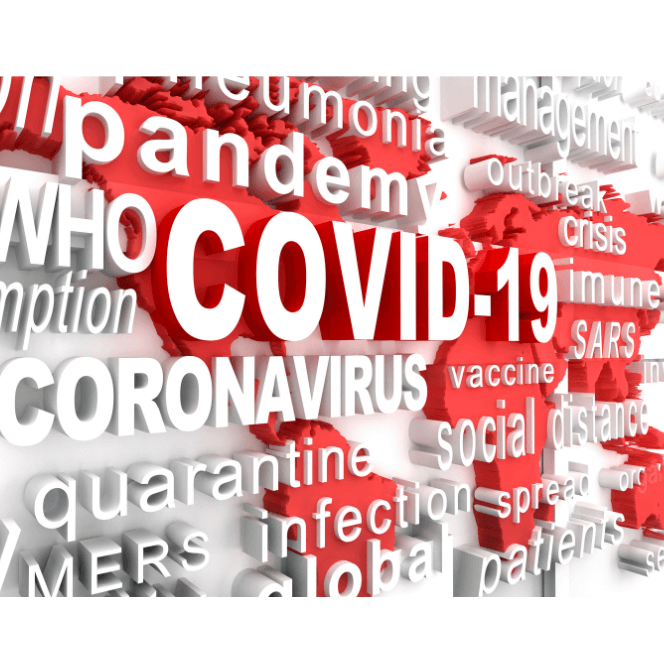In April 2020, the UN secretary general, António Guterres cautioned that COVID-19 started as a public health emergency, but it was rapidly turning into a “human rights crisis.” The Covid-19 pandemic has brought about unprecedented changes, unsettling multiple facets of our existence. Dystopian scenarios have been entertained, but acts of altruism and hope have also sprouted. One of the things that the pandemic has exposed is the ease with which debates are sparked within the scientific field. Although initially divided on fundamental issues, such as how the virus spreads, the effectiveness of wearing face masks, and the feasibility of herd immunity, scientists are still unsure about the origin of the virus. Three main theories are currently proposed: i. natural origin/zoonosis (the virus occurs naturally in the environment and jumped to humans through an intermediate host); ii. research-related origin (the engineered virus accidentally escaped the lab); iii. Mojiang Miners Passage Theory (the virus – in essence, a viral mosaic that developed in the lungs of Mojiang miners who fell ill in 2012 – was stored in a lab where it escaped in late 2019). While understanding the origins of COVID-19 is crucial for preventing future crises, the present conjuncture is an opportunity to reflect on the role that Sociology has to play in assessing scientific controversies.
Shortly after the declaration of COVID-19 as a public health emergency, the controversy over the virus’ source acquired a strong political dimension. President Trump accused the Chinese of leaking the virus from the Wuhan Institute of Virology (WIV) and WHO for being “a puppet of the Chinese.” Such toxic rhetoric soon spurred xenophobic and prejudicial attitudes in the broader public. It was within such a polemical context that the zoonotic theory soon acquired the epistemic high ground. An influential statement published in The Lancet, a highly cited article in Nature, and the authoritative WHO report all adamantly claimed that the virus had a natural origin. The polemic tone largely remained, but now the tables had been turned. Any viewpoints other than zoonosis were, at best, ill-informed exegeses or simply conspiracies. Despite the momentum that zoonosis gathered, some remained sceptical and were reluctant to accept the purported explanans. At the very least, if the virus made the leap from bats to humans through an intermediate host, how come, after thousands of samples, no such animal had been detected?
We now know from FOIA requests and proceedings of the US Select Subcommittee that advocates of the natural origin theory were not actually convinced by the exegesis that they were publicly trumpeting. One of the key authors found the viral sequence “stunning” and, in an email to his colleagues, confessed he “just [couldn’t] figure out how this gets accomplished in nature.” Even after the publication in Nature, where zoonosis was triumphantly advocated, the leading scientists entertained in private exchanges the possibility of a lab leak while also expressing safety concerns about the work conducted at WIV. The root causes of such a discrepancy are not clear. Some evidence shows that this was done to protect “science in general” as well as “international harmony.” Other evidence points to rather myopic and self-serving interests.
But what does Sociology have to say about the controversy on the origins of COVID-19? Scientific controversies are often the hallmark of Science and Technology Studies (STS), a specialized subfield of the discipline. Despite the impressive magnitude of scientific controversies that STS literature has engaged with over the past decades, there has not been an equally rich epistemological effort to assess the quality of knowledge claims made during an scientific controversies. Dominant strands of STS have routinely espoused agnostic framings of technoscientific controversies by being programmatically committed to symmetrical analyses. While the principle of symmetry, at first sight, appears to evangelize impartiality, it is an approach of cloaked favouritism, echoing the broader tendency in the social sciences to “favour the underdog and be suspicious of the powerful.”
If one is committed to agnostic frames, then the debate on the origins of COVID-19 might as well leave them indifferent. If not, how can articulated knowledge claims during controversies be evaluated? Doesn’t this lie well beyond the frontiers of the discipline? If theory, methodology, and empirical evidence modestly inform one another, as Rob Stones argues, then it doesn’t have to. Two objections can be raised against agnostic frames. First, by overreacting to positivism − and its tacit implication that scientists offer objective, value-neutral assessments − these approaches have overstressed the social at the expense of the epistemic, paying, more often than not, lip service to the importance that rules, methods, and protocols play in the advancement of technoscience. Ontologically respecting and epistemologically catering to the autonomy of the natural world, nonetheless, does not inevitably lead one to the hands of positivism. The philosophical perspective of critical realism adds a crucial wedge of humility to scientific statements by asserting that the entities and mechanisms of the natural world are not always observable. Nonetheless, a knowledge claim’s validity can be appreciated, on epistemic grounds, via triangulation with a field’s accepted – albeit tentatively – rules, methods, protocols, and other homologous knowledge claims. Depending on the analyst’s positionality, points of agreement, disagreement, and missing stocks of knowledge can be highlighted. Second, the acceptance that the social is always and inevitably present in the scientific practice should not strip the latter from any, unique to the field, normative expectations. The contribution of Robert Merton is being glaringly ignored in STS as an overly romanticized conceptualization of the scientific craft. Often portrayed as rigid and detached from reality, the American Sociologist’s oeuvre attests to the opposite, exhibiting his willingness to reconsider and revise the fourfold typology that, in a Weberian ideal-typical way, should underpin the scientific practice. The analyst interested in scientific controversies can, indicatively, examine whether situated actors are willing to: a. openly share and articulate their findings (communalism); b. assess knowledge claims according to the field’s established rules, methods, and protocols, irrespective of one’s social status (universalism); c. prioritize the advancement of knowledge over other (self-) interests (disinterestedness); d. peer review work in an epistemologically agreed and structured manner (organized scepticism). The social and the epistemic are always interwoven in knowledge claims but their relationship is never a causal one. The occasional, inadvertent, or even strategic violation of any of these norms is not necessarily conducive to a theory’s weak heuristic power. Conversely, an apparent lack of vested interests is disconnected from a theory’s explanatory authority. Recognizing how the social has impinged on the epistemic is subject to the available empirical data for each case-at-hand.
Understanding the origins of COVID-19 appears to be a daunting task at the current conjuncture. On the one hand, our knowledge is contingent on the quality of sequencing, accuracy of metagenomic reconstructions, and uninhibited accessibility to pivotal databases. Unfortunately, these prerequisites are wanting at present. On the other hand, the apparent lack of communalism, universalism, disinterestedness, and organized scepticism has led researchers to talk more often than not past one another and to become suspicious of each other’s ulterior motives. But there is much more at stake here.
In the post-truth era, where “anything goes,” sociological analysis can make two substantial contributions. First, whilst recognizing that the social always affects the epistemic, it can rehabilitate a normative frame to warn against instances in which this has been done unconscionably. Second, it can encourage (social) scientists to be modest and pragmatic when confronted with epistemic obstacles to knowledge acquisition. If one is not forthright about either of the two, they may as well be discrediting the craft they intended to safeguard in the first place.
Aristeidis Panagiotou is an Associate Professor of Sociology at the American College of Greece. He is the author of Structure, Agency, Biotechnology: The Case of the Rothamsted GM wheat trials (Anthem Press, 2017/2019). Furthermore, he has worked as a researcher for the Hellenic Federation of Enterprises (SEV), where he co-authored the report ‘The Future of Work: Tendencies, Challenges and Prospects for the Enterprises’ that was submitted to the International Labor Organization (ILO). He has also presented papers at numerous conferences organized by the BSA, ISA, ESA, and 4S. His principal areas of research include the relationship between sociological theory and methodological bracketing, the quality of knowledge claims in scientific debates, and theorizing human/non-human relations. Twitter: @arpanayo


